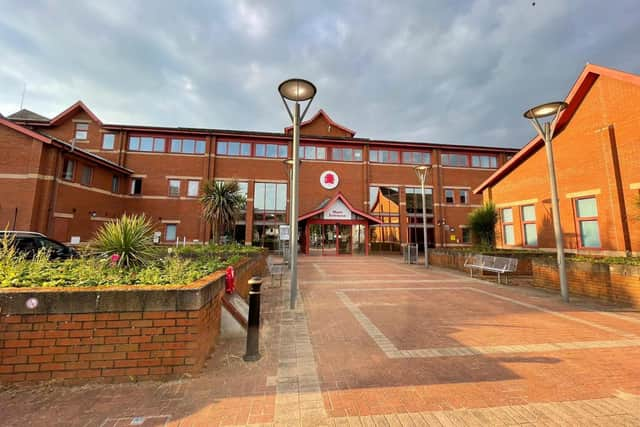Hucknall and Ashfield residents face some of the highest council tax rises in Nottinghamshire
and live on Freeview channel 276
This comes despite Government deprivation maps putting parts of Ashfield among the 10 per cent most deprived areas in the country.
The Ashfield Independents-led District Council cabinet meets this morning (Tuesday) to discuss proposals for a £5 band D rise and £3.33 rise for band A homes.
Advertisement
Advertisement
This is the most the authority is allowed to increase the precept without holding a referendum.


It will take bills paid to the district council up to £195.45 for band D and £130.30 for band A.
With the Nottinghamshire-wide bills, band A Ashfield homes would pay £1,452.24 with band D homes paying £2,178.35.
These are the highest rates in Nottinghamshire.
Advertisement
Advertisement
However, these numbers do not include charges to parish or town councils and calculations do not factor in the £150 council tax rebate from the Government to tackle the ‘cost of living crisis’ that all homes living in bands A to D will benefit from, which will be discounted from their bills by their collecting authorities.
All nine Nottinghamshire councils have set out their plans for increases or freezes to council tax from April with eight authorities increasing bills.
In Nottingham City – which covers Bulwell – council tax is split between the city council, the police and the fire authority.
Nottingham City Council, which collects the bulk of income from city council tax bills, controls all services within the city’s borders – including bin collections, schools, highways, planning, social care and healthcare.
Advertisement
Advertisement
The authority’ executive councillors are also meeting today the council’s four-year medium term financial plan which is balanced in all years from 2022-23 to 2025-26.
If that is agreed, it will go before full council on March 7.
In the wider county, council tax is split between Nottinghamshire County Council, the district and borough councils, and the two emergency services.
The county council, which collects roughly three-quarters of countywide bills, controls services like healthcare, social care, education, highways and libraries.
Advertisement
Advertisement
District and borough councils, which collect less than 10 per cent of residents’ bills, control smaller services like town centres, planning, bin collections, housing and recycling.
The Police and Crime Commissioner is also increasing its precept and Nottinghamshire Fire & Rescue has also recommended an increase for its precept.
It means from April, band A homes will pay the fire authority £56.38 and the police £169.50 for the year.
Band D homes will pay the services £84.57 and £254.25 respectively.
These changes affect all homes in the city and county.
Advertisement
Advertisement
The city council will increase its portion of council tax by 2.99 per cent from April.
One per cent will be used to support social care services, with the remaining 1.99 per cent to be used for day-to-day spending.
The council’s rise equates to £56.77 for band D and £37.85 for band A homes.
With the police and fire authority tax rises, the total increase in the city amounts to £68.38 for band D and £45.59 for band A.
Advertisement
Advertisement
It means residents in band A homes will pay a total of £1,528.74 from April, with band D households paying £2,293.11.
Meanwhile, the county council plans to increase its bills by four per cent, with three-quarters earmarked for social care and the remainder for day-to-day services.
This rise will affect all households living in the districts and boroughs of Nottinghamshire, hitting band A homes with an increase of £42.16 and band D properties with a £63.24 rise.
It takes the authority’s total band A and band D collections to £1,096.06 and £1,644.09 respectively for 2022/23.
Advertisement
Advertisement
Alongside the fire authority and police elements, the countywide council tax payments for Nottinghamshire – not including district and borough councils – is £1,321.94 for band A and £1,982.91 for band D.
However, district and borough precepts – which fluctuate depending on each area – bring this sum up.
Labour-led Gedling is another authority proposing the same £5 band D and £3.33 band A rise.
Its collection figure would rise to £178.07 for band D and £118.71 for band A.
Including all countywide payments, band A homes in non-parished areas will pay £1,440.65, with band D homes will pay £2,160.98.
